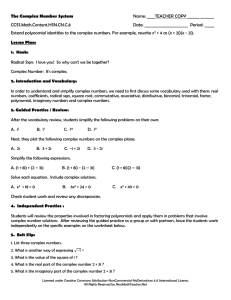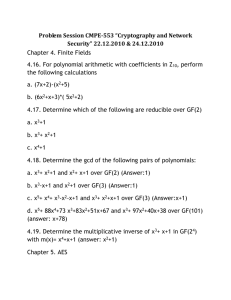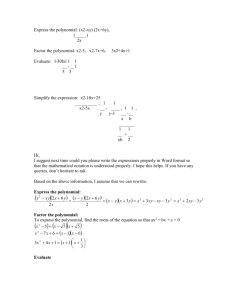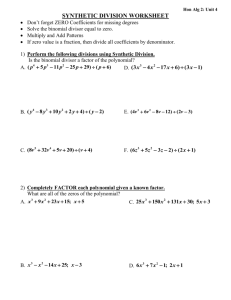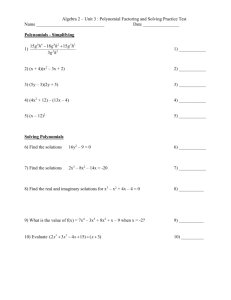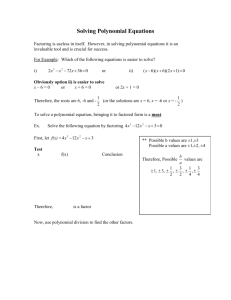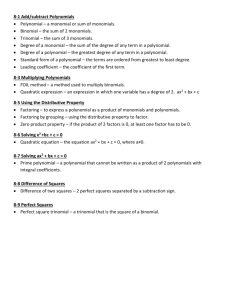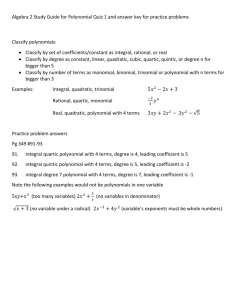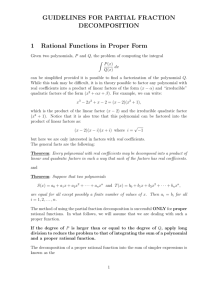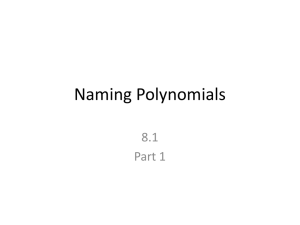Classifying Polynomials
advertisement
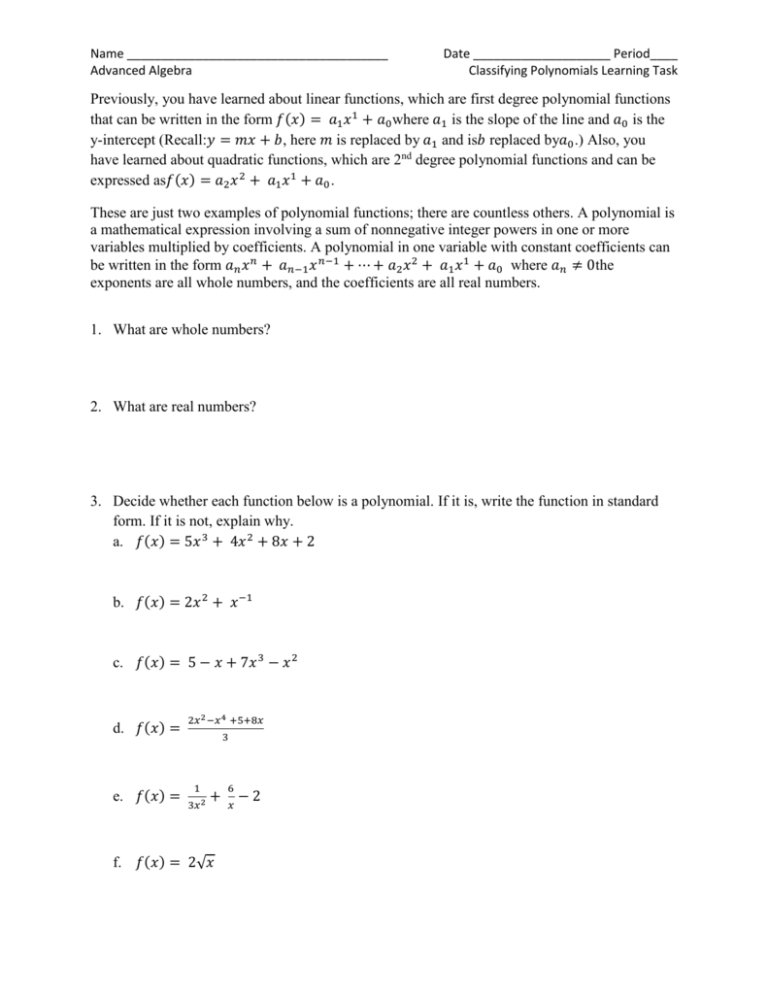
Name ______________________________________ Advanced Algebra Date ____________________ Period____ Classifying Polynomials Learning Task Previously, you have learned about linear functions, which are first degree polynomial functions that can be written in the form 𝑓(𝑥) = 𝑎1 𝑥1 + 𝑎0 where 𝑎1 is the slope of the line and 𝑎0 is the y-intercept (Recall:𝑦 = 𝑚𝑥 + 𝑏, here 𝑚 is replaced by 𝑎1 and is𝑏 replaced by𝑎0 .) Also, you have learned about quadratic functions, which are 2nd degree polynomial functions and can be expressed as𝑓(𝑥) = 𝑎2 𝑥 2 + 𝑎1 𝑥1 + 𝑎0 . These are just two examples of polynomial functions; there are countless others. A polynomial is a mathematical expression involving a sum of nonnegative integer powers in one or more variables multiplied by coefficients. A polynomial in one variable with constant coefficients can be written in the form 𝑎𝑛 𝑥 𝑛 + 𝑎𝑛−1 𝑥 𝑛−1 + ⋯ + 𝑎2 𝑥 2 + 𝑎1 𝑥1 + 𝑎0 where 𝑎𝑛 ≠ 0the exponents are all whole numbers, and the coefficients are all real numbers. 1. What are whole numbers? 2. What are real numbers? 3. Decide whether each function below is a polynomial. If it is, write the function in standard form. If it is not, explain why. a. 𝑓(𝑥) = 5𝑥 3 + 4𝑥 2 + 8𝑥 + 2 b. 𝑓(𝑥) = 2𝑥 2 + 𝑥 −1 c. 𝑓(𝑥) = 5 − 𝑥 + 7𝑥 3 − 𝑥 2 d. 𝑓(𝑥) = e. 𝑓(𝑥) = 2𝑥 2 −𝑥 4 +5+8𝑥 3 1 3𝑥 2 + f. 𝑓(𝑥) = 2√𝑥 6 𝑥 −2 Name ______________________________________ Advanced Algebra Date ____________________ Period____ Classifying Polynomials Learning Task 4. Polynomials can be classified by the number terms as well as by the degree of the polynomial. The degree of the polynomial is the same as the term with the highest degree. Complete the following chart. Make up your own functions for the last three rows. Polynomial Number of Terms Classification by Number of Terms Degree Classification by Degree 𝑓(𝑥) = 2 monomial constant 𝑓(𝑥) = 3𝑥 − 1 binomial linear 𝑓(𝑥) = 𝑥 2 − 2𝑥 + 1 trinomial quadratic 𝑓(𝑥) = 8𝑥 3 + 125 binomial cubic 𝑓(𝑥) = 𝑥 4 − 10𝑥 + 16 trinomial quartic 𝑓(𝑥) = −𝑥 5 monomial quintic
